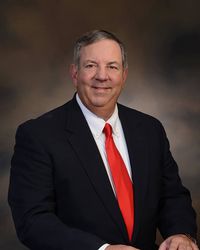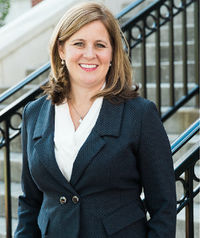Super Tuesday local judicial elections in review
2017 →
← 2015
|
Poll opening and closing times |
March 2, 2016
Choices at the ballot box were extremely limited when it came to local judicial elections in Arkansas, Tennessee and Texas on Super Tuesday. High rates of unopposed races and an entire state without Democratic candidates were limitations caused by candidate filings. A unique limitation arose in Tennessee when some judicial seats that serve multiple counties only saw primaries in some of those counties.
Still, these elections are not the end of the story for 2016 trial court elections in these three states. Arkansas held general elections with only a handful of contested races, but two of those were tight enough to require a runoff in November. Similarly competitive Texas primaries will require runoff primaries in May before the general election can be held in November.
The Tennessee general election, much like the primaries, will see many unopposed candidates. Unlike the primaries, the general election in August will include nonpartisan judicial races as well.
For more information, click on each state's tab below.
Arkansas
- For complete results and analysis see: Arkansas local trial court judicial elections, 2016
Only four of Arkansas' 18 local judicial offices up for general election on Tuesday saw contested races. Two of those contested races, however, were close enough to require a runoff election on November 8, 2016. In any race where a candidate receives less than a majority of the votes cast (50 percent plus 1), a runoff between the top two general election vote recipients is required.
In Division 1 of the Arkansas 11th Judicial Circuit West Court, Alex Guynn and Althea Hadden-Scott advanced to a runoff election. In Division 3 of the Arkansas 12th Judicial Circuit Court, Shannon Blatt and Dianna Hewitt Ladd advanced to a runoff.
Chalk Mitchell and Curtis Walker Jr. both won a majority of the vote in their races, for Division 4 of the First Circuit and Division 6 of the Second Circuit, respectively. No runoff will be necessary in either race.
In total, 10 incumbents sought re-election, and they were all unopposed. Arkansas' last local judicial elections in 2010 also saw entirely unopposed incumbents.
Tennessee
- For complete results and analysis see: Tennessee local trial court judicial elections, 2016
While a dozen Tennessee trial court judicial seats will see special elections in August this year, only three had contested partisan primaries on Tuesday night. The primary winners will only face independent and write-in candidates on the general election ballot, as no Democrats filed for any of the partisan seats. This made most of these primaries the decisive vote for each seat.
Despite that, some court seats that cover multiple counties only saw primaries in some of the counties they cover, leaving residents in the counties that chose not to have partisan primaries with less choice than their county neighbors. Tennessee state law provides for counties to decide whether or not they will hold partisan primaries. It does not, however, address seats that cover more than one county. This is why a court seat that covers two or more counties might only see primaries in a few of them. Despite only being voted upon by part of the electorate for those seats, those primary winners advance to the general elections. The lack of party diversity among candidates further limits voter choice in the non-primary counties.
This lack of choice was most significant in the 19th Circuit Court races for its Part III and IV seats. The court hears cases from both Montgomery and Robertson counties, but Robertson County chose not to hold a primary for the seats. A straw poll conducted prior to the primary election by the Montgomery County Bar Association found Roger Nell and Jill Ayers as the leading candidates in their respective Place III and IV races for the 19th Circuit Court. Fifty-two percent of poll participants favored Nell, while 37 percent favored Ted Crozier Jr. and 10 percent favored Herb Patrick. Ayers, meanwhile, polled at 62 percent in the Part IV race; her challenger, Robert Bateman, followed with 37 percent. The results were published in The Leaf-Chronicle on January 15, 2016.[1]
The poll was only accurate for the Part IV race. Ayers won her primary with almost 58 percent of the vote and advances to an unopposed general election in August. For Part III, Crozier defeated straw poll-favorite Nell. Voters in Robertson County will have choice beyond Croizer and a write-in vote in August. Two independent candidates will appear on the Part III general election ballot: Merriel Bullock-Neal and John Finklea.
The only other contested primary was held for Hamilton County Criminal Court. Tom Greenholtz, who was appointed to the court following the resignation of Judge Rebecca J. Stern in June 2015, defeated two primary challengers. He faces no official challengers in the general election.
Tennessee's judicial seats are up for regular election every eight years, with the next regular election in 2022. Vacancies that occur in between elections, however, are filled by appointments until special elections can be held for their remaining terms. Division III of the Sumner County General Sessions Court and Part IV of the Nineteenth Circuit Court were unique races, as they were the only two local judicial seats up for election in 2016 not due to vacancies. Both of the seats were created in 2015. The terms won in this election were shortened to six years to bring the seats into alignment with the regular eight-year election cycle for judges.[2]
All of this week's partisan primary winners advanced to the general election on August 4, 2016. Elections for nonpartisan judicial seats will also appear on the fall ballots.
Texas
- For complete results and analysis see: Texas local trial court judicial elections, 2016
| Texas Local Court Elections, 2016 | ||
|---|---|---|
| Overall | ||
| Seats up for election | District courts | County courts |
| 259 | 36 | |
| Contested | Unopposed | Opposed |
| 189 | 106 | |
| Incumbency status | Incumbent running | Open seat |
| 182 | 113 | |
| Partisanship | ||
| Party | ||
| Total candidates |
152 | 253 |
| Primary races |
81 | 105 |
| Primary runoff races |
9 | 11 |
Over 61 percent of the Texas trial court incumbent judges whose seats are up for election this year are seeking re-election. Only 22 of them, however, faced a primary challenge within their party on Tuesday. For one incumbent, good news on election night included the defeat of a husband and wife pair challenging him.
In Harris County, Richard Leach and Gloria Cantu Minnick, a married couple who own a legal practice together, unsuccessfully sought nominations from the Democratic and Republican parties in the primary. Both argued that incumbent Clyde Leuchtag (R) was unqualified to win a full term in office; Leuchtag criticized both candidates for trying to use the partisan election system to win the seat for themselves. Leach and Minnick were defeated at the polls by margins of 20-plus percent—23.2 percent for Leach and 39.3 percent for Minnick.[3]
Three of the incumbents who faced primaries advanced to primary runoffs, and another four lost to their challengers. The other 15 defeated their primary opponents. In total, 20 runoff primary elections will be held on May 24, 2016. While a total of 72 district and county court seats were on the ballot for partisan primaries, these 20 runoffs are required because one candidate did not receive a majority (50 percent plus one) of the votes cast in their race. The winners of the other 52 primaries advanced directly to the general election on November 8, 2016.
One more runoff would have been necessary in District 435, but the resignation of Michael Seiler (R) in February 2016 made it moot. Seiler stepped down and ended his campaign due to an investigation into allegations of inappropriately obtaining juror information for a campaign fundraising letter. He would have advanced to a runoff election against Patty Maginnis (R) if his resignation had not included a requirement to withdraw from future elections, including the primary runoff.[4]
See also
- Judicial elections, 2016
- Arkansas local trial court judicial elections, 2016
- Tennessee local trial court judicial elections, 2016
- Texas local trial court judicial elections, 2016
Footnotes
- ↑ The Leaf-Chronicle, "Jill Bartee Ayers, Roger Nell favorites in poll of judicial races," January 15, 2016
- ↑ The Tennessean, "Carter sworn in as new Sumner County judge," July 1, 2015
- ↑ The Houston Press, "LOCAL HUSBAND-WIFE LAW PARTNERS RUNNING FOR SAME COURT IN DIFFERENT PRIMARIES," January 13, 2016
- ↑ The Courier of Montgomery County, "Seiler resigns from 435th bench, avoids criminal prosecution," February 16, 2016
| |||||





